BPI’s Holiday Reading List is Here!
With the holidays upon us we thought it would be the perfect time to share some of our book recommendations to give or to keep. Enjoy our Holiday Reading List!
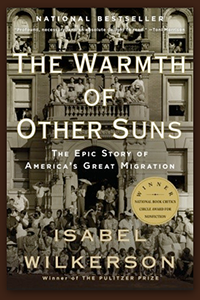 Recommended by Marissa Manos:
Recommended by Marissa Manos:
The Warmth of Other Suns: The Epic Story of America’s Great Migration
by Isabel Wilkerson
Winner of the Pulitzer Prize and National Book Critics Circle Award for Nonfiction, this book is not only pertinent to BPI’s work and mission, but a great read about real people.
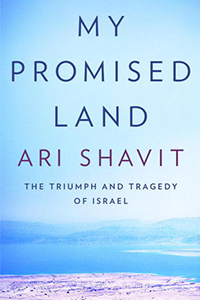 Recommended by Betsy Lassar:
Recommended by Betsy Lassar:
My Promised Land: The Triumph and Tragedy of Israel
by Ari Shavit
Written by Ari Shavit, a respected Israeli journalist, My Promised Land: The Triumph and Tragedy of Israel delves deeply into the history of Zionism and Israel and how that history frames the current situation in the Middle East. The author exposes painful contradictions and raises compelling questions for all who yearn and work for peace in the Middle East.
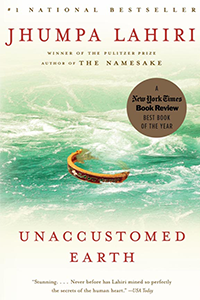 Recommended by Emily Brown:
Recommended by Emily Brown:
Unaccustomed Earth
by Jumpa Lahiri
A thoroughly enjoyable collection of short stories, mostly told from the perspective of first generation South Asian-American women. I found all of the stories to be beautifully written, emotionally poignant, and very relevant to the young independent female experience.
The Human Condition
by Hannah Arendt
If you want to get into some contemporary political philosophy that is simultaneously complex and accessible (or if you’re just a giant nerd like me), then Hannah Arendt is your lady. The Human Condition offers a profound account of human life and political action with especially insightful discussions about the history of philosophy and Judeo-Christian scripture. I like to pick up this book once in a while for inspiration, especially when I am feeling generally cynical about the value of civic engagement or I need some extra motivation to keep fighting the good fight.
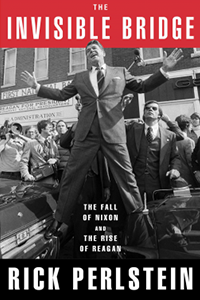 Recommended by Torsten Edstam:
Recommended by Torsten Edstam:
The Invisible Bridge: The Fall of Nixon and the Rise of Reagan
by Rick Perlstein
Perlstein’s book provides an in-depth examination of American politics from 1973-1976. By exploring this period between the fall of Nixon and the rise of Reagan, he gives readers valuable new insights into the development of the conservative movement. Beautifully written and full of wonderful details about our own history, Perlstein’s work will contribute substantially to any reader’s understanding of modern-day American politics.
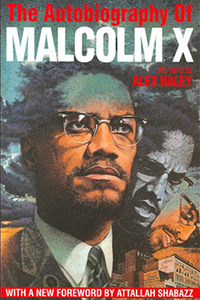 Recommended by Julie Brown:
Recommended by Julie Brown:
The Autobiography of Malcolm X
by Malcolm X and Alex Haley
When I was 17, my father gave me this book. Even though I was already a very politically aware young person, reading it was an extraordinarily important experience. I’ve since passed it on to my nephew and daughter, at similar ages. I hope it is as meaningful for each of them. While Malcolm X’s role in the civil rights and black power movements may have been eclipsed by Martin Luther King, Jr., his voice remains an important complement to the mainstream history that young people learn today.
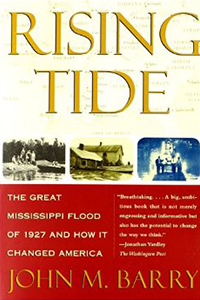 Recommended by Ellen Elias:
Recommended by Ellen Elias:
Rising Tide: The Great Mississippi Flood of 1927 and How It Changed America
by John M. Barry
From start to finish this book is truly gripping—on a human level and as social history. One of the greatest natural disasters in American history, the flood has been called “a caldron of racism and greed.” Among other things, it resulted in the confinement of over 300,000 African Americans in Delta refugee camps for months, the ultimate dismantling of the South’s “planter aristocracy,” the launch of Herbert Hoover’s road to the White House, and, most significantly, the acceleration of The Great Migration—making it a real tipping point event in American civil rights history.
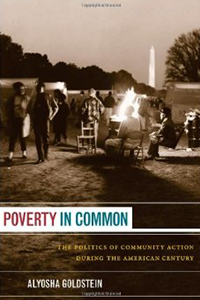 Recommended by Em Hall:
Recommended by Em Hall:
Poverty in Common: The Politics of Community Action During the American Century
by Alyosha Goldstein
In this complex but rewarding read, Goldstein aims to address the historical inequity of the War on Poverty and examine how liberalism in particular determined mid-twentieth-century treatment of and attitudes toward the poor. His book represents a leap forward in the study of the history of poverty in mid-twentieth-century America, and how the domestic War on Poverty and liberal governance influenced and were affected by concepts of liberty, liberation, and development to an international audience.
